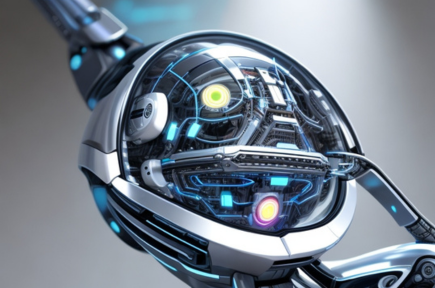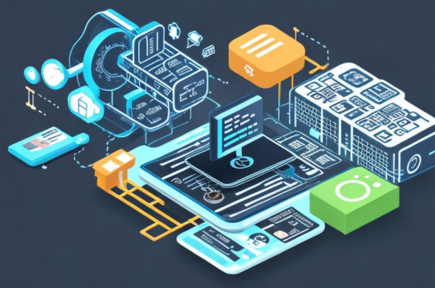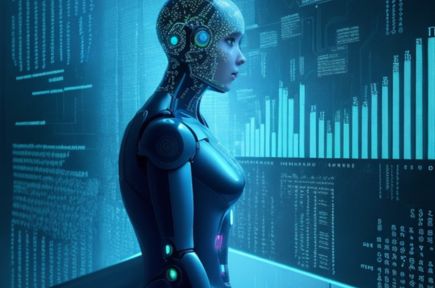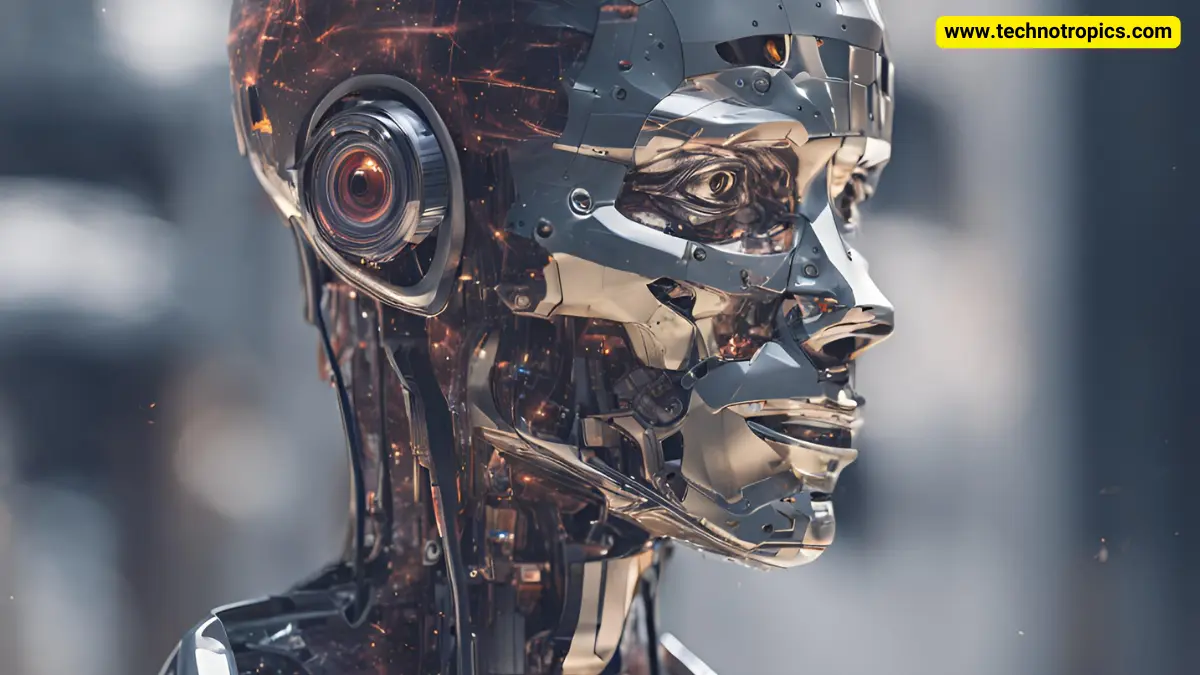Artificial Intelligence (AI) has been making waves across various industries, revolutionizing the way business operations are conducted.
In the realm of digital marketing, AI has become a game-changer, reshaping the landscape and affecting the jobs within the field.
As we delve into 2023, the impact of AI on digital marketing jobs is more significant than ever before.
This article will explore the transformation brought about by AI, its effects on different digital marketing roles, and the evolving skills required to thrive in the industry.

The Rise of AI in Digital Marketing
Digital marketing has evolved exponentially over the years, moving from traditional methods to more data-driven and technologically advanced practices.
One of the most notable advancements in recent years is the integration of AI.
AI technologies like machine learning, natural language processing, and predictive analytics have made it possible to automate various tasks and processes, making digital marketing more efficient, targeted, and cost-effective.
A. Automation of Routine Tasks
AI has significantly impacted digital marketing by automating routine tasks. Tasks that were once time-consuming, such as data analysis, A/B testing, and email campaign optimization, can now be handled more efficiently by AI-driven tools. This automation frees up digital marketers to focus on strategy and creativity, rather than getting bogged down in repetitive tasks.
B. Personalization and Customer Insights
AI has also enabled deep personalization in marketing efforts. It can analyze vast amounts of data to understand customer behavior, preferences, and demographics. This enables marketers to create highly targeted and relevant content, resulting in improved customer engagement and conversions. AI-driven tools like chatbots and recommendation engines provide personalized experiences to users, enhancing customer satisfaction.
C. Predictive Analytics
Predictive analytics is another critical area where AI has made a significant impact. Marketers can now use AI algorithms to forecast trends, customer behavior, and market dynamics. This allows for more informed decision-making, helping businesses stay ahead of the competition and adjust their strategies in real-time.
The Changing Landscape of Digital Marketing Jobs
The integration of AI into digital marketing has not only streamlined processes but also altered the job descriptions and responsibilities of professionals in the field.
A. Data Analysts and Scientists
Data analysts and scientists have become indispensable in the age of AI-driven digital marketing. They are responsible for collecting, cleaning, and interpreting data from various sources. With AI automating many data-related tasks, data professionals now focus on designing and training AI algorithms to extract valuable insights and develop data-driven strategies.
B. Content Creators
Content creation is still a vital aspect of digital marketing, but AI has had a profound impact here as well. While AI can generate content, such as news articles and product descriptions, it’s the job of content creators to add the human touch. They focus on storytelling, creativity, and maintaining brand consistency, working alongside AI tools to produce compelling and engaging content.
C. SEO Specialists
Search engine optimization (SEO) specialists play a crucial role in ensuring that content and websites rank well in search engine results. AI has made SEO more complex and data-driven. Specialists need to understand how AI algorithms work and adapt their strategies to keep up with changing search engine algorithms.
D. Social Media Managers
Social media managers are responsible for creating and managing social media campaigns. AI has made this role more data-focused, with managers utilizing AI tools to analyze user behavior, schedule posts at optimal times, and target specific demographics. Social media managers now require a strong understanding of AI-driven social media analytics.
E. Email Marketers
Email marketing remains a powerful tool in digital marketing. AI has enhanced email marketing by enabling the creation of highly personalized and automated email campaigns. Email marketers need to learn how to leverage AI to improve open rates, click-through rates, and overall campaign performance.
F. Marketing Strategists
Marketing strategists are responsible for designing and implementing comprehensive marketing plans. With AI providing valuable insights and automating many tasks, strategists can make data-driven decisions and focus on developing long-term, creative strategies that set their brands apart.
Challenges and Concerns
While AI has undoubtedly improved the efficiency and effectiveness of digital marketing, it also presents challenges and concerns for professionals in the field.
A. Job Displacement
One of the most significant concerns is the fear of job displacement. As AI automates routine tasks and data analysis, there is a worry that certain roles within digital marketing may become obsolete. However, it’s important to note that AI is a tool that enhances human capabilities rather than replacing them entirely. Professionals who adapt and acquire AI-related skills can remain relevant and valuable in the industry.
B. Privacy and Ethical Concerns
The use of AI in digital marketing raises privacy and ethical concerns. AI algorithms collect vast amounts of user data, and there is a fine line between personalization and invasion of privacy. Marketers must strike a balance and adhere to ethical data usage practices to maintain the trust of their customers.
C. Data Security
The increased reliance on AI for data analysis and decision-making also highlights the importance of data security. With AI systems handling sensitive customer information, there is a greater need for robust data security measures to protect against breaches and cyberattacks.
The Evolving Skill Set
As AI continues to reshape the digital marketing landscape, professionals in the field need to acquire and develop new skills to thrive in their roles.
A. AI Literacy
Digital marketers need to become AI-literate. This involves understanding the basics of AI, its capabilities, and its limitations. It also involves knowing how to collaborate with AI systems to achieve marketing objectives.
B. Data Analysis
Professionals must improve their data analysis skills, focusing on data interpretation and deriving actionable insights from the information provided by AI-driven tools.
C. Adaptability
The digital marketing landscape is continually evolving, and professionals must be adaptable. They should be willing to learn and adapt to new AI-driven technologies and trends.
D. Creativity
While AI can automate many tasks, creativity remains a distinctly human skill. Content creators, in particular, must hone their storytelling and creative abilities to complement the work of AI.
E. Ethical Marketing
With the increased use of AI, ethical considerations are paramount. Digital marketers need to develop ethical marketing skills and ensure that their campaigns respect user privacy and data security.
The Future of Digital Marketing Jobs
The impact of AI on digital marketing jobs in 2023 and beyond is transformative. While there are concerns about job displacement and ethical challenges, there is also a world of opportunities for those who embrace AI technologies.
A. Specialized AI Roles
As AI continues to advance, specialized roles in AI-driven marketing may emerge. These roles may focus on the development, implementation, and maintenance of AI algorithms specific to the field.
B. Enhanced Customer Experiences
AI will play a pivotal role in enhancing customer experiences through personalized content, chatbots, and recommendation engines. Professionals who excel in creating these experiences will be in high demand.
C. AI-Driven Advertising
Advertising is likely to become even more data-driven and personalized with the aid of AI. Professionals skilled in AI-driven advertising campaigns will have a competitive edge in the industry.
D. Continuous Learning
The digital marketing landscape is ever-changing, and professionals must engage in continuous learning to stay relevant.
This includes staying updated on AI developments and their impact on the field.
Conclusion
The impact of AI on digital marketing jobs in 2023 is profound. AI has automated routine tasks, enabled personalization, and improved predictive analytics in the industry.
Digital marketing jobs have evolved, and professionals now require a diverse skill set, including AI literacy, data analysis, adaptability, creativity, and ethical marketing.
While there are challenges and concerns associated with AI in digital marketing, such as job displacement and ethical considerations, the future is promising for those who embrace AI technologies. Specialized AI roles, enhanced customer experiences, AI-driven advertising, and continuous learning opportunities await those who are prepared to thrive in this ever-evolving landscape.
As AI continues to shape the digital marketing industry, it’s essential for professionals to adapt, learn, and leverage AI to its fullest potential.


